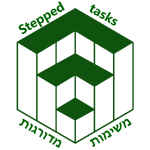
תכנית "משימות מדורגות" עוסקת בפיתוח ויישום משימות מדורגות מהווה גישה עכשווית להוראת המתמטיקה ברמה גבוהה בכיתות הטרוגניות.
הגישה תומכת בעבודתם של מורים למתמטיקה המלמדים ברמה של 5 יח"ל ויכולה לעזור להם להתמודד עם ההטרוגניות של כיתה.
משימות מדורגות* הן פעילויות מתמטיות המכוונות להוראת מתמטיקה תוך דירוג רמת האתגר המתמטי. משימה מדורגת כוללת בעיה מתמטית מורכבת ("בעיית מטרה") שמלווה במספר בעיות (מדרגות) ברמות שונות של אתגר מתמטי ומשמשות כפיגום שבו התלמיד יכול להסתייע במידה ואינו מצליח לפתור את הבעיה המורכבת.
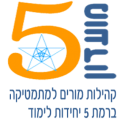
מועדון ה- 5, קהילות מורים של 5 יח"ל, הינו פרויקט יוקרתי שמטרתו שיפור איכות הוראת המתמטיקה ברמה של 5 יח"ל (מנוהל על ידי אוניברסיטת חיפה בתמיכת קרן טראמפ). מטרתו, הובלת מורים למתמטיקה המלמדים ברמה של 5 יח"ל ללמד מתמטיקה להבנה ויצירתיות, ולהעלאת המוטיבציה של מורים ושל התלמידים ללמד וללמוד מתמטיקה ברמה גבוהה. אנו מאמינים שכך נתרום להגדלת מספר התלמידים הלומדים מתמטיקה ברמה של 5 יח"ל. הפרוייקט שם גם לעצמו גם כיעד הצמחת מורים מובילים המתעתדים לנהל קהילות.
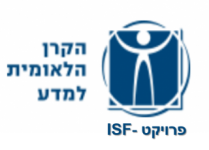
הפרויקט מחקר שמתמקד בחקר מיומנויות המורים לדרוג רמת האתגר המתמטי בהוראת מתמטיקה ברמות גבוהות, בכיתה הטרוגנית בתיכון.
הפרויקט מתפרס על ארבע שנים (החל מספטמבר 2018 ) וכולל פיתוח כלי מחקר (ראיונות אישיים וקבוצתיים ודף לתצפית בכיתה) שיאפשרו לחקור את שיטות ההוראה הקשורות לדירוג רמת האתגר המתמטי בכיתה הטרוגנית. מטרת המחקר היא לבחון באילו סוגים של שיטות הוראה הקשורים לדירוג רמת האתגר המתמטי ,משתמשים המורים לצורך הוראת מתמטיקה ברמה גבוהה בכיתה ההטרוגנית. בנוסף, יבחנו ההבדלים בשיטות ההוראה הקשורות לדירוג רמת האתגר המתמטי: (א) בקרב מורים ברמות מומחיות שונות (ב) בקרב מורים שמכירים ומיישמים משימות מדורגות* בכיתתם לעומת מורים שלא (ג) בין שיעורים שונים מבחינת רמת היכולת וההטרוגניות

פרויקט מפת"ח מתמטי עוסק בפיתוח ויישום משימות פתוחות לכיתות הטרוגניות בחטיבת הביניים.
הגישה תומכת בעבודתם של מורים למתמטיקה המלמדים בחטיבת הביניים ויכולה לעזור להם להתמודד עם ההטרוגניות של כיתה.
אנו מאמינים כי ניתן לפתח את החשיבה, להעלות את המוטיבציה של התלמידים, לשפר את יכולות החשיבה וההבנה שלהם, ואף להעלות את הישגיהם.
המשימות הן משימות פתוחות מתוכנית הלימודים ומעודדות פיתוח של חשיבה מתמטית. אלו משימות מרובות תשובות ומרובות פתרונות. ישומונים לחקר מתמטי מלווים את הלמידה.
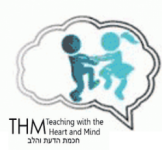
פרויקט מחקר חדשני להקמת מרכז מצוינות ארצי להוראת מיומנויות המאה ה- 21 בישראל (ביוזמת משרד החינוך ובמימון הקרן הלאומית למדע בישראל).
מדובר במחקר פורץ דרך שמציע פיתוח של מודל אינטגרטיבי להוראת מיומנויות המאה ה- 21, מודל שניתן יהיה ליישם בבתי הספר היסודיים בישראל בקנה מידה רחב.
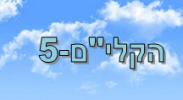
הקלי"ם -5: הכשרה קלינית להוראה ייחודית – מתמטיקה 5 יח"ל
תכנית הקלי"ם-5 – היא תכנית הכשרה ייחודית ויוקרתית לתלמידי החוג לחינוך מתמטי שלומדים לתעודת הוראה. התכנית מנוהלת בחוג לחינוך מתמטי באוניברסיטת חיפה ובשיתוף ובתמיכה של קרן טראמפ. מטרת התכנית היא להכשיר סטודנטים להוראת מתמטיקה ברמה של 5 יח"ל. בתכנית לומדים הוראת מתמטיקה באמצעות שיטות הוראה והערכה מגוונות תוך התמקדות באיתור וניתוח אירועי הוראה קריטיים. באמצעות ניתוח האירועים הקריטיים לומדים המתכשרים להתאים את ההוראה שלהם ליכולות ולצרכים של כל תלמיד/ה הלומדים מתמטיקה ברמה של 5 יח"ל.
2016-2019 הכשרה קלינית של מורים למתמטיקה להוראת מתמטיקה ברמה גבוהה (ברמת 5 יחידות לימוד).
2014-2017 הערכת השינויים ביצירתיות המתמטית בהשפעת תרופות.
2012-2013 יצירתיות, מחוננות והישגים במתמטיקה.
2012 קיום סדנת מחקר בינלאומית של הקרן הלאומית למדע, בנושא: חקר וקידום יכולות מתמטיות בבתי הספר העל-יסודיים.
2011-2012 מהם המאפיינים הייחודיים ביצירתיות של תלמידים מחוננים במתמטיקה?
2010-2012 חקר רב-ממדי של גאונות מתמטית לעומת מחוננות מתמטית ולעומת ילדים שאינם מחוננים.
2009-2010 תכנון ופיתוח פעילויות העשרה במתמטיקה לתלמידי בתי הספר היסודיים.
2007-2008 קיום הכנס הבינלאומי החמישי בנושא יצירתיות במתמטיקה וחינוך של מחוננים.
2016-2024 מלגות לסטודנטים.

